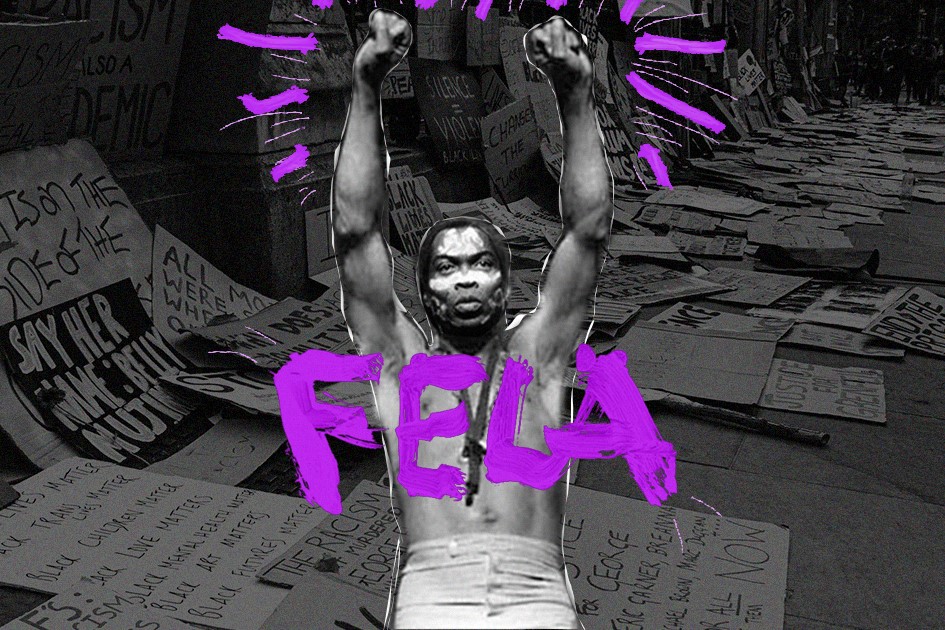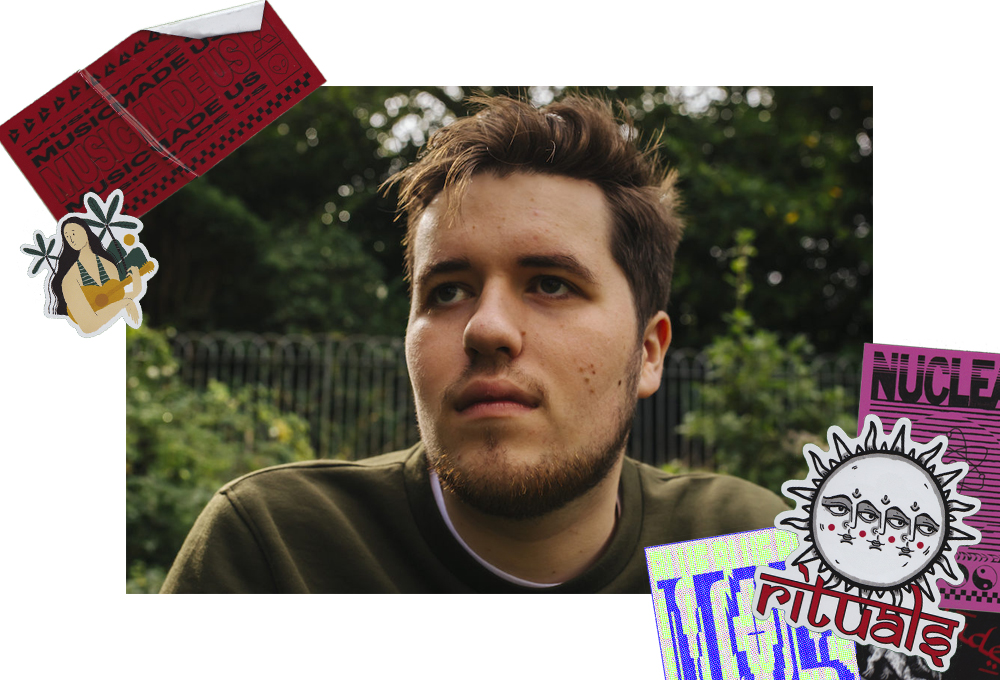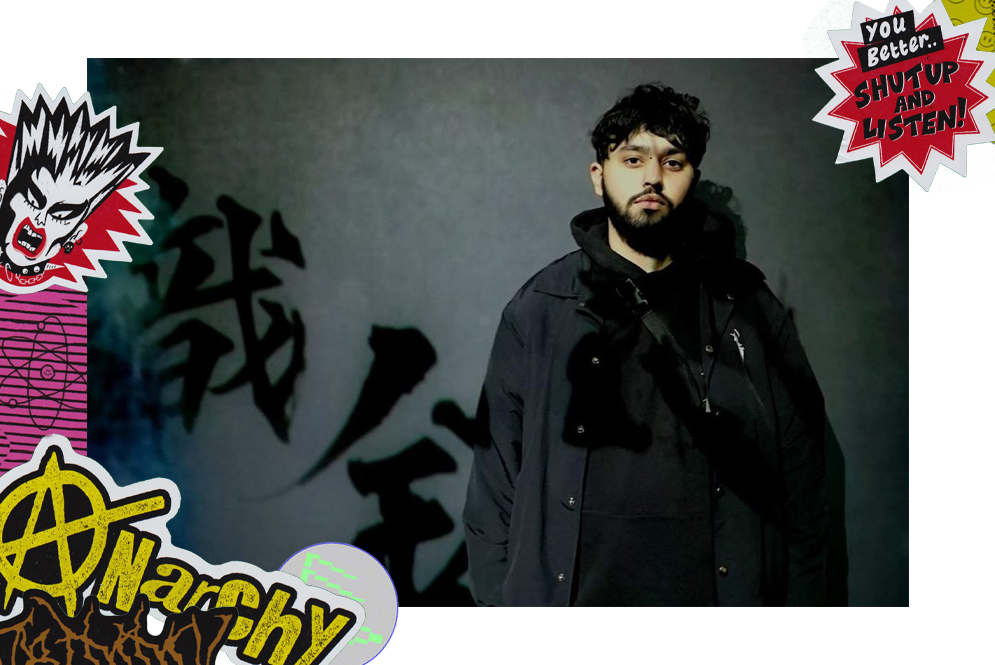As part of our Music Made Us campaign, creatives, music professionals, experts and journalists reflect on how music has been there for us through good times and tumultuous periods that inspire change. Throughout generations, music has sparked, supported and commented on movements, memories and moments in time.
Our contributors explore these events’ relationship with music – from slavery in the 1800s to the UK’s 80s acid house and rave scene and the 1992 LA riots. Here, graduate Punit Kavia explores how music has given him and others a voice, a platform, and power during turbulent episodes and fractious world events. He also looks at how disruptive moments in history have affected Afrobeat music, hip-hop, and grime – and the continuing importance of music as a creative outlet.
To the general public, music is nothing but noise about sex, love, or sadness, and what chart number that particular song reached that week. But it is so much more than that – music is a medium that transcends languages, countries and cultural boundaries.
Musicians are tastemakers, influencers, and vocal activists taking a snapshot of society at a particular time and creating a social commentary to dissect what they experience
Musicians are tastemakers, influencers, and vocal activists taking a snapshot of society at a particular time and creating a social commentary to dissect what they experience. Taking a look back through musical history, it is clear that the most impactful albums often coincide with large-scale sociocultural movements. However, what is more interesting is how those same musical styles return to combat the same injustices some decades later.
For example, Fela Kuti, the pioneer of Afrobeat (a blend of traditional Nigerian Yoruba music with jazz, West African highlife and funk) used his musical movement to congregate citizens and speak out against Nigeria’s military dictatorship. Half a century later and Kuti’s influence and movement still run strong with global star Burna Boy taking up the mantle in the fight against oppression and corruption.
Some 6,613 miles away from Fela Kuti, another musical movement began its infancy in the “great and free” US of A. A child was born a decade after the end of the first civil rights movement in America. This is a child who will eventually become the most consumed and culturally influential genre since the flower-power movement of the 60s.
Hip-hop has its five pillars: lyricism/the MC, DJing, breakdancing, graffiti, and most importantly, the knowledge. Hip-hop formed in the ruins of a post-industrial and demolished South Bronx, where the mayor and the government economically motivated landlords to burn their buildings down to push out the largely African-American and Latinx residents in those neighbourhoods. This violent form of gentrification marginalised these urban communities, leaving them alienated and voiceless.
Hip-hop culture was born from two decks; a mixer, and DJ Kool Herc mixing the breaks of two identical vinyl to create one cohesive breakbeat. This, along with a wordsmith or ‘MC’, meant that the youths of the Bronx had a sound and a voice where they could self-express in confidence. Bronx block-parties became a place where inner-city youths got to form and create their own culture, whilst openly rallying against oppression and having fun.
And this philosophy transcends across the decades. Ten years later, Rodney King is brutally beaten by officers and the evidence is caught on camera. The resulting riots and demonstrations were soundtracked by N.W.A – once again, a musical movement soundtracking a societal one – with people taking to the streets in chorus rapping lyrics from Straight Outta Compton in protest and anger.
Taking to the streets for the Black Lives Matter protests in London, we all rally and sing in chorus Kendrick Lamar’s ‘Alright’ – our generation’s civil rights anthem. This is a comforting anthem that people of colour and other oppressed communities need, to remind us that, despite the ever-growing injustice and discrimination, in the long run, we gon’ be alright.
The era of pirate radio gave birth to so many distinctly UK genres.
Grime is now a household name. However, in the early 00s, it was still an underground movement. Grime reflected the harsh realities of inner-city life, and vividly described what it meant to be a black man in London during a time of over-policing and racial scapegoating. This voice thrived until the government introduced Form 696. This gave the authorities the power to shut down events and revoke licenses on the grounds of suspected violence.
And the music that unified and energised us? Grime.
As tensions continued to rise during the 00s, it was 2011 when the UK really turned into the U.S. The shooting of Mark Duggan by the police (who claimed he was in possession of a handgun) sparked riots across the UK. We took to the streets fighting for justice. And the music that unified and energised us? Grime.
As a musician, your creativity can have real power and impact that will change generations to come.
However, the greatest driving force behind change is you – the artist. Petitions are great, and all, and so are protests. But, as a musician, your creativity can have real power and impact that will change generations to come. You, the creative, have the power to change the views and opinions of the greater public whilst they consume your art. And perhaps post-COVID, your perseverance to do what is right and just will create a movement and a legacy of your own.
Power to the people.
WANT TO FIND OUT MORE?
Here’s a reading list of books that help tell the story.
- Fela Anikulapo Kuti: The Primary man of an African Personality (Jawi Oladipo-Ola)
- Arrest the music! Fela and his rebel arts and politics (Tejumola Olaniyan)
- Inner City Pressures: The Story of Grime (Matt Hancox)
- This Is Grime (Hattie Collins & Olivia Rose)
- Grime Kids: The Inside Story of the Global Grime Takeover (DJ Target)
- Born in the Bronx: A Visual Record of the Early Days of Hip Hop (Johan Kugelberg)
- The Hip-Hop Movement: From R&B and the Civil Rights Movement to Rap and the Hip Hop
- Generation (Reiland Rabaka)
- The New Jim Crow (Michelle Alexander)
Our Music Made Us campaign is told through the students, graduates, journalists, experts and passionate people who have been shaped by this creative outlet. Discover their stories here.



